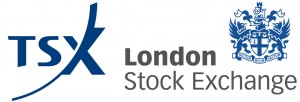In February of this year. 2011, the London Stock Exchange (LSE) and Toronto’s TMX Group (TMX)
announced an “all-stock” merger. Since February, much debate has occurred as to the
advantages and disadvantages of such a merger, the issues involved, the structure of the new
entity, and most notably whether the deal is a merger of equals or a takeover of the TMX by
the LSE.
This proposed merger involves many issues that are positive for the Canadian Financial
System. First, the merger will provide Canadian companies access to an expanded pool of
capital, mostly in the United Kingdom and by extension in Europe. This would particularly
benefit Canadian resource companies as they would now be listed on the London Stock
Exchange. Second, the merger is anticipated to create additional revenue for shareholders
of both exchanges. Third, it is expected that the merger will result in a cost savings of
approximately $56 million mainly through the merging of the exchanges’ technology allowing
for an increase in number of trades and speed and efficiency of transactions. Fourth,
economies of scale will be created as the TMX and LSE will have a combined market listing,
joint headquarters and 6,700 listings (making it the world’s largest exchange by number of
companies listed). Finally, with other exchanges around the world discussing mergers or
already merged (for example NYSE Euronext and Deutsche Boerse), the newly merged
exchange will be better able to compete.
On the other hand, the proposed merger involves many issues that are contentious and
negative for the Canadian Financial System. First, there will be a culture clash between the
Toronto exchange, which provides investment to smaller companies, particularly in the resource
sector, and the London exchange, which in the past has tended to favour larger companies and
has been less willing to take chances on listing startups. Therefore, the merged exchange may
not support small and medium-sized Canadian companies. Second, the London exchange is
still feeling pain from the recent financial crisis. The Toronto exchange, on the other hand, is
much more stable, thanks in part to the heavy representation of the hot resource sector on its
listings. This begs the question: Why would the TMX want to attach itself to the dead weight of
the London exchange and risk its relatively good current situation and subject itself to regulation
by the European Union’s regulatory bodies? Third, several exchanges across the world are
merging and/or considering mergers. This indicates that the TMX may receive a better offer
from someone else. It also indicates that the merged company may be subject to another
merger by an even larger entity for increased market share, leaving the TMX
with even less power. Finally and most importantly, the structure of the new company is not
desirable. The new company will not be formed by a “merger of equals” but rather by a buyout
of the TMX by the LSE. The current CEO of the LSE will be the CEO of the new entity, LSE
shareholders will own 55% of the new company, and the LSE will hold 8 seats on the Board of
Directors compared to 7 for the TMX Group. It can be argued, therefore, that the TMX would
not have any control over the decisions made by the company and would be unable to regulate
in the market.
There are many advantages and disadvantages to the proposed merger of TMX and LSE, the
largest disadvantage being the structure of the deal and the takeover of the TMX by the LSE
as opposed to a “merger of equals”. While the TMX shareholders would look positively on the
merger, stakeholders in the Canadian financial system would have concerns. In our opinion,
the best result is a re-modelling of the existing deal to address concerns in the structure, or
an abandonment of the deal in favour of keeping the TMX open for possible future mergers.
The likely outcome, given the current indications of various levels of government, public,
and financial institutions, is that the deal will not be approved as it stands and will either be
significantly revised or abandoned.



